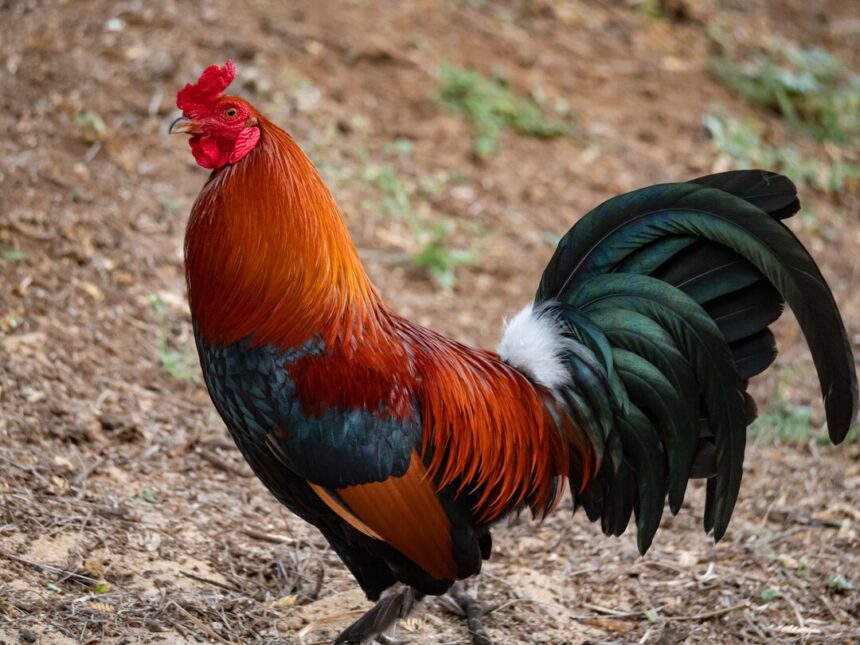Bantam chickens, known for their small size, colorful plumage, and friendly disposition, are a popular choice among poultry enthusiasts in South Africa. Whether you’re a seasoned breeder or considering raising bantam chickens for the first time, understanding the unique characteristics and requirements of these diminutive birds is essential for successful breeding and farming operations. In this article, we’ll explore 10 key things you should know about breeding bantam chickens in South Africa.
1. Origin and History
Bantam chickens are believed to have originated in Southeast Asia and were brought to Europe by Dutch traders in the 17th century. They were later introduced to South Africa, where they have become a popular choice for backyard flocks and exhibition poultry due to their small size and attractive appearance.
2. Small Size
One of the most distinctive features of bantam chickens is their small size compared to standard chicken breeds. Bantams typically weigh between 500 grams to 1.5 kilograms, making them ideal for small backyard flocks or urban homesteads where space may be limited.
3. Variety of Breeds
Bantam chickens come in a wide variety of breeds, each with its own unique characteristics and plumage patterns. Popular bantam breeds in South Africa include Pekin, Silkie, Dutch, and Sebright, among others, each prized for its distinct appearance and temperament.
4. Dual-Purpose
While bantam chickens are smaller than standard breeds, they are still capable of producing eggs and meat. While they may not lay as many eggs or grow as quickly as their larger counterparts, bantam hens can still provide a steady supply of small to medium-sized eggs, making them a valuable addition to any backyard flock.
5. Colorful Plumage
One of the most appealing aspects of breeding bantam chickens is the wide range of colors and plumage patterns available. Bantams come in a kaleidoscope of hues, from vibrant reds and oranges to soft blues and grays, making them a colorful and attractive addition to any poultry flock.
6. Broodiness
Bantam hens are known for their strong brooding instincts and make excellent mothers. They will often go broody and hatch their eggs, making them ideal for natural incubation and rearing of chicks. Their small size and gentle nature also make them excellent foster mothers for hatching eggs from other breeds.
7. Space Requirements
Due to their small size, bantam chickens require less space than standard chicken breeds, making them well-suited to backyard or urban environments. However, it’s still essential to provide adequate space, shelter, and protection from predators to ensure the health and well-being of your bantam flock.
8. Feeding and Care
Bantam chickens have similar dietary requirements to standard chicken breeds and should be fed a balanced diet of commercial poultry feed supplemented with fresh fruits, vegetables, and occasional treats. They also require access to clean water, grit, and oyster shell for calcium supplementation.
9. Health Considerations
While bantam chickens are generally hardy and resilient, they are still susceptible to common poultry diseases and parasites. Regular health checks, vaccination programs, and good biosecurity practices are essential for preventing and managing health issues in your bantam flock.
10. Exhibition and Showing
Many bantam enthusiasts in South Africa enjoy participating in poultry exhibitions and shows, where they can showcase their birds and compete for prizes. Breeding and exhibiting bantam chickens can be a rewarding hobby and a great way to connect with other poultry enthusiasts in your community.
Breeding bantam chickens in South Africa can be a rewarding and enjoyable experience for poultry enthusiasts of all levels. With their small size, colorful plumage, and friendly disposition, bantams make charming additions to any backyard flock or urban homestead. By understanding the unique characteristics and requirements of bantam chickens, breeders can successfully raise healthy and happy birds while enjoying the many benefits of this delightful poultry breed.
Join 'Farmers Mag' WhatsApp Channel
Get the latest Farming news and tips delivered straight to your WhatsApp
CLICK HERE TO JOIN






